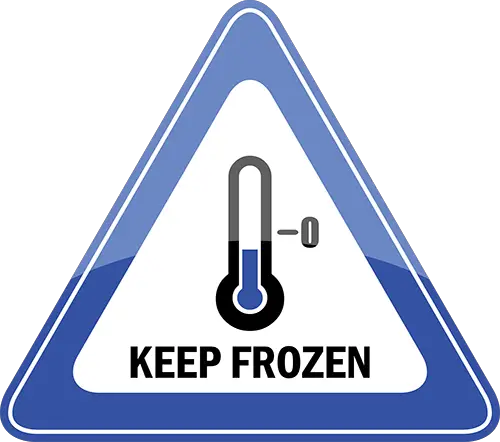How To Stop Ice Cubes From Freezing Together (Explained)
When go to grab ice cubes from the freezer, you often end up with one giant clump of ice that’s hard to break up. This can be frustrating, especially when trying to make a cold drink or fill a cooler at your party.
But don’t worry; in this article, I’ll provide several different methods to stop your ice cubes from freezing together.
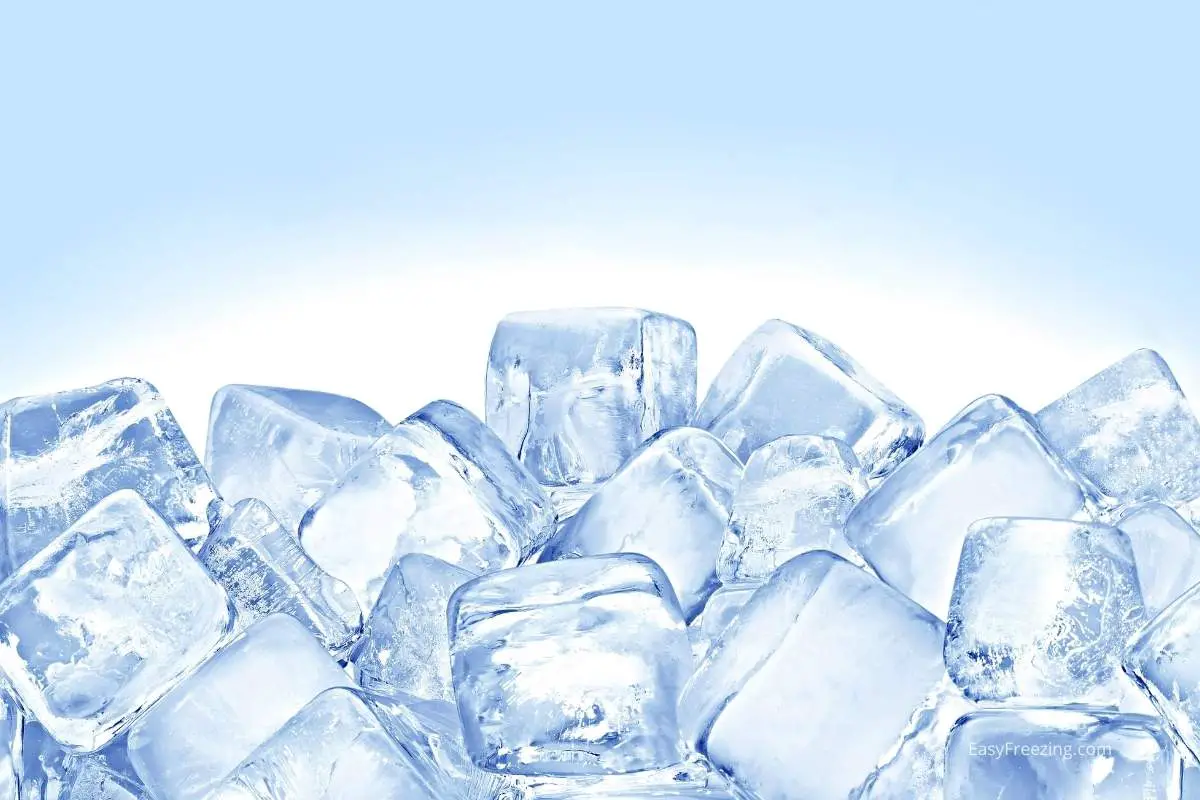
Keep Your Freezer at Lower Temperatures Prevents Ice From Sticking Together
- Lower Temperatures Insulate Your Ice
You may not realize it, but the temperature of your freezer plays a role in how well your ice cubes resist sticking together. When water freezes, it expands and creates microscopic air pockets. These pockets help to insulate the ice and prevent it from melting quickly.
- Lower Temperatures Keep Your Ice Separate and Solid
Keeping the freezer cold will keep the ice cubes solid and help preserve those crucial air pockets, ultimately keeping your ice cubes nice and separate. However, if the freezer temperature is too warm, these pockets will collapse, causing the ice to stick together.
- Lower Moisture Levels
Sticking ice cubes has a lot to do with the moisture in your refrigerator. Excess moisture condenses on the coldest surface of the appliance – usually the back wall of the freezer. Over time, this water builds up and freezes into a thick layer of ice. There are a few ways to decrease the moisture content in your freezer and prevent ice buildup.
- Shut Your Freezer Door
Try to keep the door closed as often as possible. When you open the freezer door, warm air rushes in and condenses on the cold surfaces, adding to the overall moisture level inside the freezer.
- Don’t Overstock Your Freezer
A full freezer is less efficient at circulating air, leading to higher humidity levels. High humidity levels can increase moisture in your ice maker or bags of ice, causing your ice to stick together.
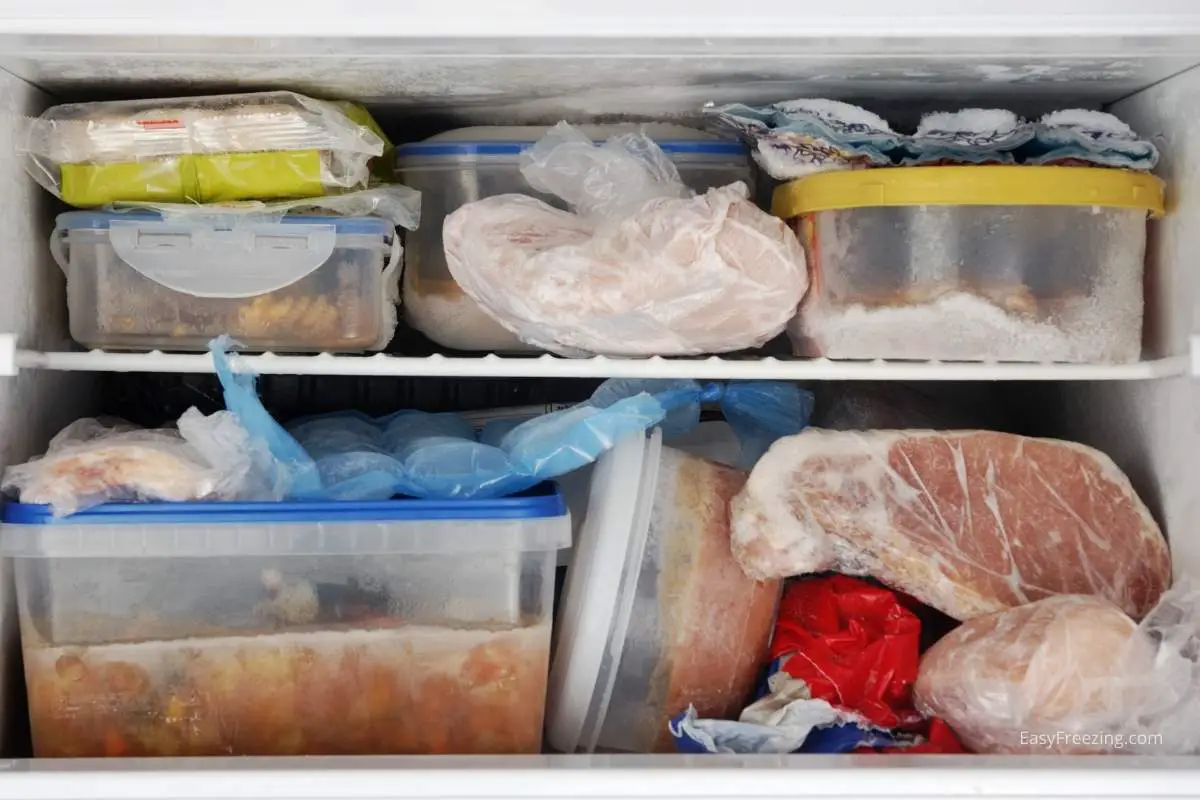
- Put a Bowl of Uncooked Rice in the Ice Maker
Consider placing a bowl of uncooked rice in your freezer. The rice will absorb excess moisture and help keep your freezer feeling fresh.
Use a Paper Bag to Line Your Ice Maker
A Paper bag acts as an absorbent, which means that it can soak up any excess liquid. When you line your ice maker with a paper bag, the paper absorbs extra moisture on the cubes’ surface. This helps the ice cubes from sticking together.
Additionally, a clean paper bag provides a barrier between the ice cubes, making it easier for them to slide apart when you pour them out. If you you’d like to try this, it’s best to use uncoated paper that’s fairly thick. This will help to absorb more moisture and provide greater protection and less sticking for the ice cubes.
Store Ice Cubes in the Back of Your Freezer
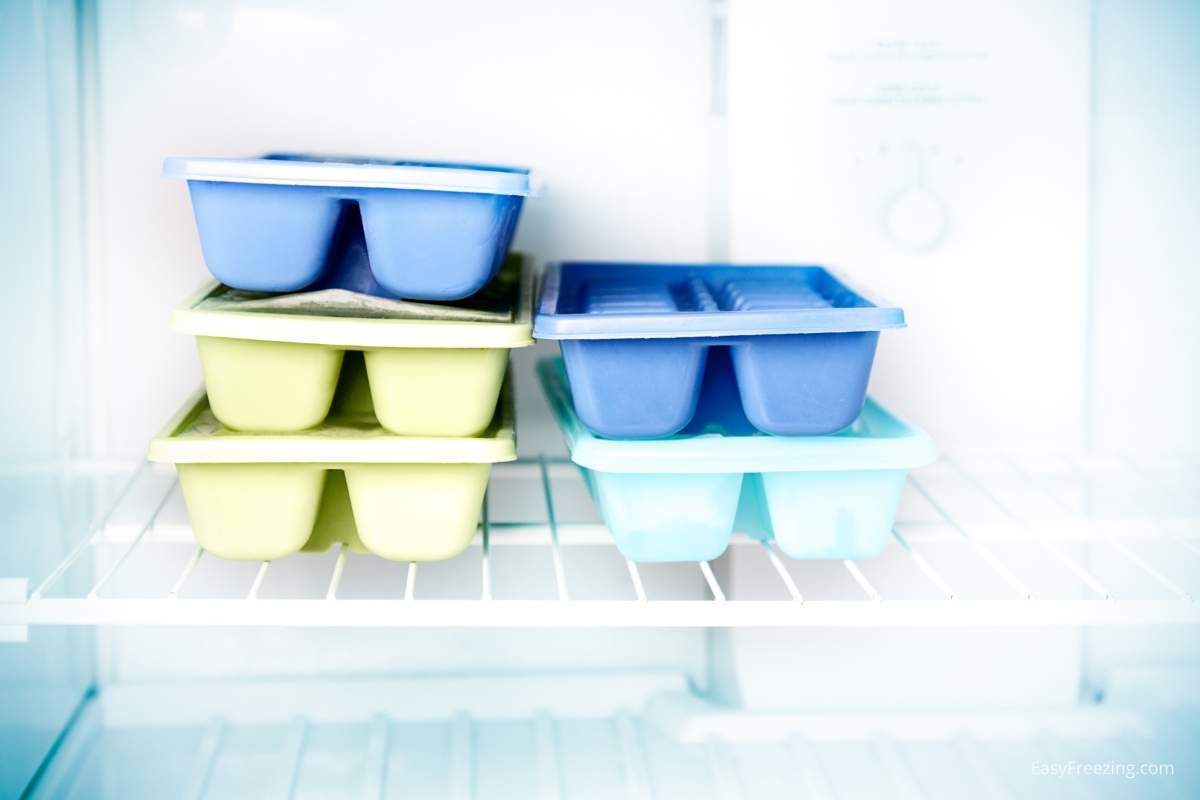
Storing ice cube trays at the back of the freezer may seem trivial, but it can help keep ice from sticking together. One reason is that the temperature inside the freezer rises every time you open the door, which can partially melt the ice cubes. When these ice cubes refreeze, they can stick together, forming one giant clump of ice. You can prevent this by storing ice cubes at the very back of the freezer.
Avoid Putting Pressure on Ice
It turns out that even pressure can cause ice cubes to melt and can lead to ice sticking. When ice is under pressure, the individual ice crystals are forced together. This causes the temperature of the ice to increase, which causes the ice to melt.
The water generated by this melting then coats the surface of the ice, which refreezes and leads to the freezing of the ice altogether. If you’re putting ice cubes in paper bags or an ice tray, avoid putting any objects above them.
Break Your Ice Every Week
Breaking up ice can resist transforming ice cubes into huge clumps of ice. The longer your ice stays in your ice dispenser, ice bucket, or ice machine, the more likely it is to result in ice sticking.
Stirring the ice once a week with a wooden spoon can absorb the moisture and lessen the chance of ice freezing together. This way, you won’t have to chisel ice cubes before enjoying your favorite drink.
Clean Your Ice Machine
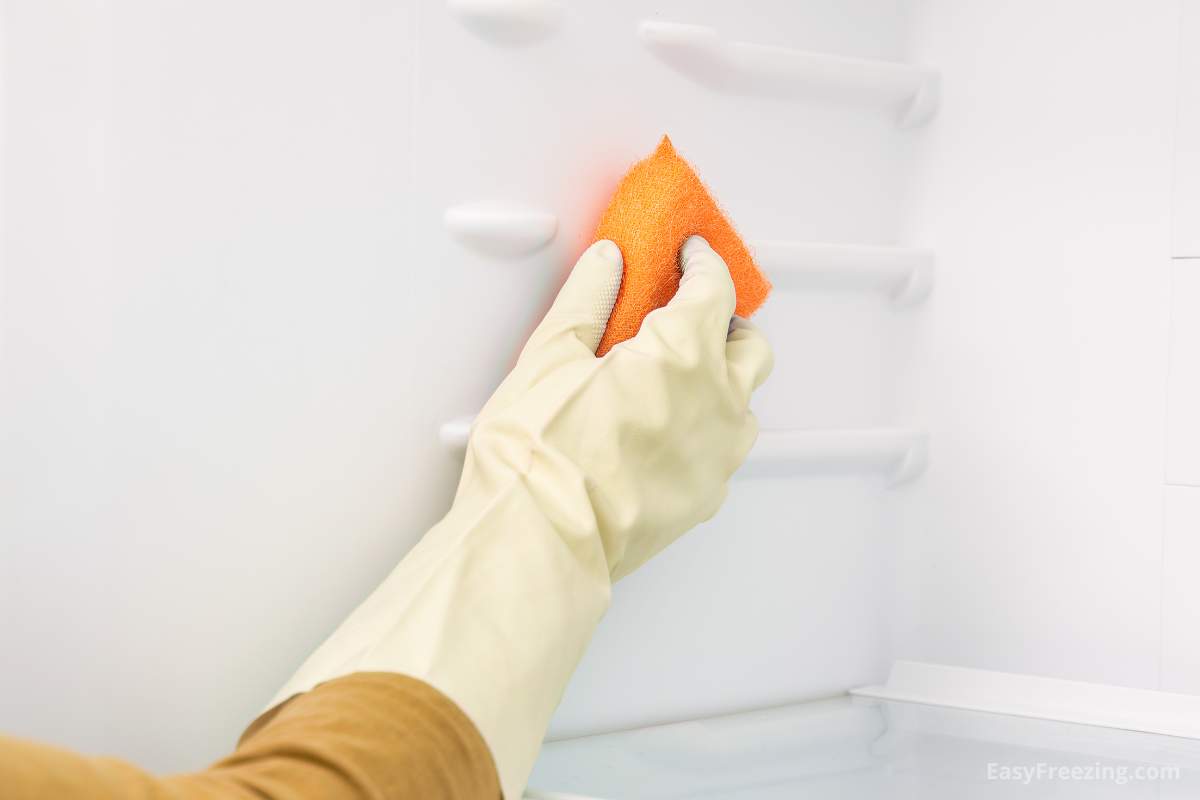
Keeping your freezer clean and free from excess frost will help to keep your ice from sticking together, as well. If large amounts of frost are allowed to accumulate, it can keep the freezer door from sealing properly when shut. This allows warm air to continuously seep into the freezer, causing a regular melting and refreezing cycle that is sure to end with your ice cubes freezing together in clumps.
In addition, regularly wiping down the freezer will also keep your icebox smelling fresh.
Rotate Your Ice
A popular strategy to prevent ice clumps in your ice machine or bucket is simply rotating your ice regularly. Using a wooden spoon or small spade, scoop out the bottom layer of ice and move it to the top. This will help to prevent the bottom layers from fusing together. Make sure to leave plenty of space at the top of the freezer for new ice cubes.
Use Bags to Store Ice
If you know you won’t be using your ice for a while, it’s a good idea to divide it and place it into bags. This will not only prevent big amounts of ice from clumping together but also prevent your ice from absorbing unwanted aromas and odors from your freezer.
The Defrost Timer Should Be Turned Off
Another way to prevent ice cubes from sticking together is to turn off the defrost timer. The defrost timer on your freezer is responsible for automatically thawing out the ice that builds up on the freezer walls.
However, it also causes the ice in the freezer to melt slightly and refreeze, which can cause it to stick together. Turning off the defrost timer can help prevent the ice from freezing and sticking together.
How To Stop Ice From Freezing Together – Final Thoughts
So, there you have it. Our top tips for avoiding Ice bags from clumping and sticking together in your freezer. By following the above points, you can keep your home freezer running efficiently and ensure that you always have ice on hand.
